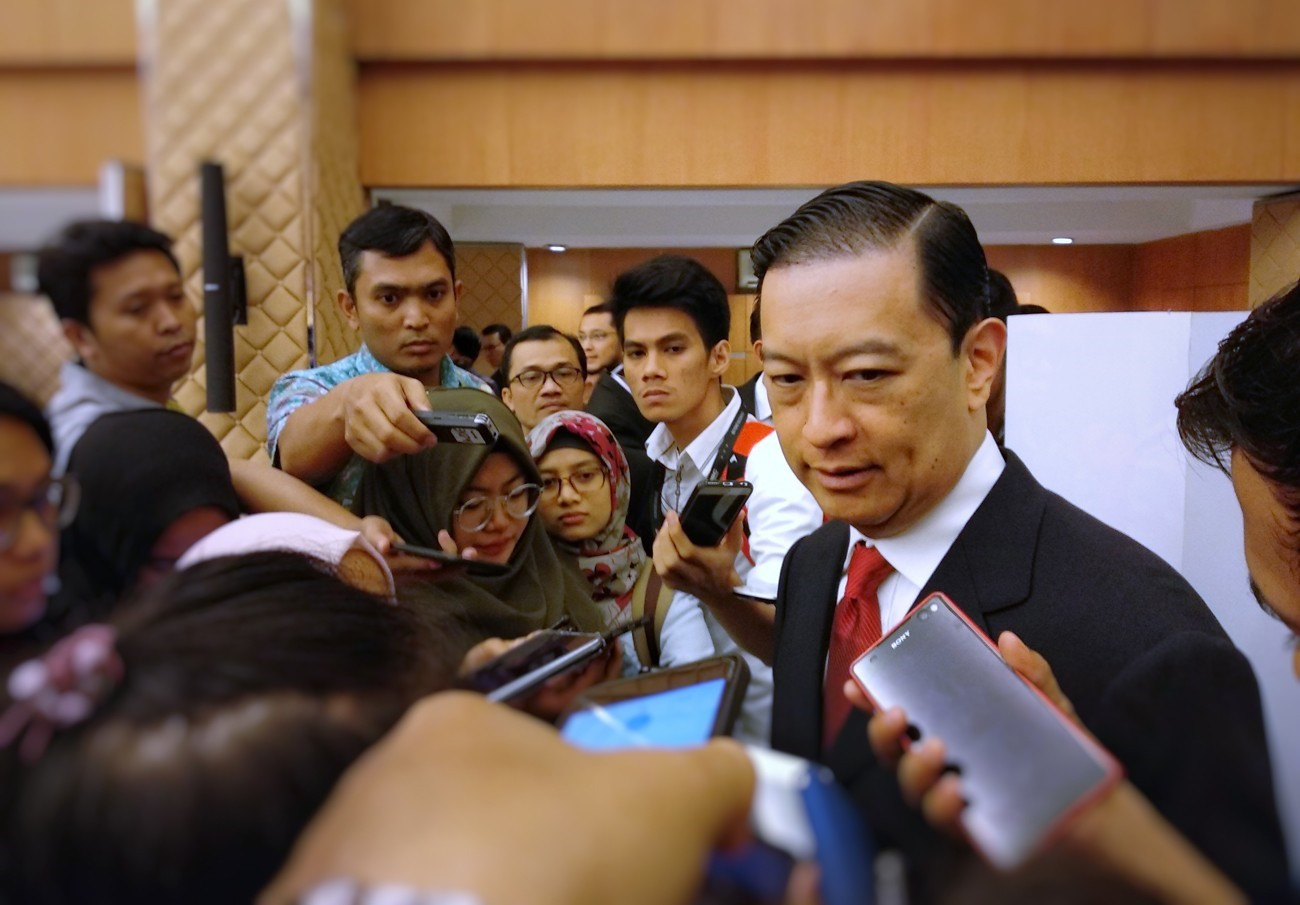News
Tom Lembong verdict: Loyalty, not merit, takes precedence
Tenggara Strategics July 28, 2025 Investment Coordinating Board head Thomas Lembong. (JP/Anton Hermansyah)
Investment Coordinating Board head Thomas Lembong. (JP/Anton Hermansyah)
Before the final verdict and sentence were handed down on July 18 in the sugar import graft trial, many had hoped the Jakarta Corruption Court would deliver a just decision. This did not turn out to be the case, and Thomas “Tom” Trikasih Lembong was convicted and handed a penalty of four years and six months in prison and a fine of Rp 750 million (US$46,000).
The illicit scheme occurred during Tom’s brief tenure as trade minister in 2015-2016 under then-president Joko “Jokowi” Widodo. The court found him guilty of abusing his authority by enacting a policy to issue sugar import licenses without interministerial approval, and at a time of domestic sugar surplus. This benefited several private companies but incurred Rp 578 billion in state losses.
Despite the guilty verdict, the court noted that Tom never profited personally from the scheme and had no criminal intent (mens rea) to defraud the state. Meanwhile, the former minister and his defense team pointed to glaring inconsistencies. Tom highlighted that prosecutors accused him of issuing permits without interministerial coordination (rakor), yet the same indictment accused him of disregarding a rakor outcome that indicated a sugar surplus.
Rumors of foul play have surrounded the trial since the graft scandal came to light in October 2023, when the Attorney General’s Office (AGO) launched an investigation as Tom was working as deputy manager of Anies Baswedan’s presidential campaign. Since Jokowi was still in power, many speculated that the case was politically motivated due to a perceived betrayal that Tom was backing Anies, a staunch critic of Jokowi and a rival candidate of Prabowo Subianto and his running mate, Gibran Rakabuming Raka, Jokowi’s son.
Given his four and a half year prison sentence, the court's verdict effectively sidelines him from being involved in any campaign for the 2029 presidential elections.
Before their relationship soured, Jokowi and Tom had long-standing political ties throughout Jokowi’s first term, when Tom was appointed trade minister in 2015, and then head of the Investment Coordinating Board (BKPM) in 2016. During this period, the Harvard-educated banker became a close aide, often writing the president’s speeches and accompanying him to international forums until his first term ended in 2019.
Tom penned two of Jokowi’s iconic 2018 speeches, peppered with pop culture references to Game of Thrones and Marvel’s Avengers to describe the turbulent global economic conditions of the time, which were delivered on an international stage. A viral 2015 clip even showed Jokowi passing on an intricate economic question from an international reporter about public-private partnerships to Tom. “I want to task my minister. Please answer the question, Pak [Mr.] Tom,” Jokowi said, chuckling.
What a difference a few years can make. Once a trusted confidant, Tom has now been convicted by a court that acknowledged he had no intent to commit a crime. His sentencing sends an alarming message to current officials and future professionals. If someone of Tom’s stature can be convicted of corruption without criminal intent, how will this fare for the next generation of policymakers in the top-down bureaucratic system, where low-level officials often bow to the chain of command?
An ongoing corruption case on Chromebook procurement involving former education minister Nadiem Makarim recently saw his special staffer, Jurist Tan, convicted on charges of abetting, while the AGO is still questioning Nadiem.
With a former Army general now president and a growing trend of a politicized judiciary, unquestioned loyalty appears to have taken precedence in the country’s political and bureaucratic landscape.
As Prabowo continues to make headlines mocking the public for their pessimistic sentiment of “kabur aja dulu” (just flee first), perhaps their grievances are not without merit, as it seems that even good intentions are left unprotected from the ill intentions of the powers that be in today’s Indonesia.
What we've heard
A government official familiar with the case said that the impression of politicization arose due to various factors during the trial. The official recounted having once proposed to the AGO that former trade ministers besides Tom also be summoned, since sugar imports were not limited to Tom’s tenure. "They said they would wait until this case is resolved first," he said.

